Understanding Supplementation
Supplementation refers to the practice of consuming dietary products, such as vitamins, minerals, herbs, and amino acids, to enhance overall health and wellbeing. This practice is increasingly common as individuals seek to fill nutritional gaps in their diets or to achieve specific health goals. Supplements serve various purposes, such as supporting immune function, improving energy levels, or promoting mental clarity. They can come in various forms, including tablets, capsules, powders, and liquids, catering to different preferences and needs.
It is essential to distinguish between dietary supplements and whole foods. Whole foods, such as fruits, vegetables, whole grains, and lean proteins, are the foundation of a balanced diet, providing a complex array of nutrients alongside fiber, antioxidants, and other beneficial compounds. Supplements, on the other hand, are concentrated sources of specific nutrients designed to complement these foods. While some individuals may require supplementation due to dietary restrictions or health conditions, others may simply wish to enhance their nutrient intake.
The role of supplements in nutrition extends beyond mere convenience; they can play a pivotal role in preventing deficiencies and supporting optimal health when used appropriately. However, it is crucial to approach supplementation with caution. Not all supplements are created equal, and their efficacy can vary greatly. Therefore, it is advisable to consult healthcare professionals before beginning any supplementation regimen. This ensures that the supplements chosen are appropriate for one’s individual health status and dietary needs. By engaging in this dialogue with a healthcare provider, individuals can make informed choices that align with their health objectives.
Benefits of Supplementation
Supplementation plays a crucial role in addressing nutritional deficiencies that can arise from various dietary choices and lifestyle factors. Many individuals struggle to meet their daily nutritional requirements due to busy schedules, restrictive diets, or limited access to certain foods. Supplements, including vitamins, minerals, and herbal products, can effectively fill these gaps, ensuring individuals receive the essential nutrients necessary for optimal health.
Research suggests that specific supplements can markedly support immune function. For instance, vitamin C and zinc have been shown to enhance immune responses, helping to reduce the duration and severity of common illnesses. A study published in the Journal of Immunology demonstrated that participants taking these supplements had a significantly reduced risk of respiratory infections and better overall immune health.
Another noteworthy benefit of supplementation is its impact on energy levels and physical performance. Many athletes utilize supplements such as branched-chain amino acids (BCAAs) and creatine to enhance their training regimens. According to a study in the Journal of Strength and Conditioning Research, BCAAs can reduce exercise-induced fatigue and improve recovery times, allowing athletes to train harder and longer. The use of energy-boosting supplements is not limited to athletes; individuals experiencing fatigue in their daily activities may find similar benefits from supplements like B vitamins and coenzyme Q10.
Recovery from physical exertion is also significantly aided by proper supplementation. Products containing omega-3 fatty acids are renowned for their anti-inflammatory properties, which can facilitate quicker recovery after workouts. A meta-analysis found that omega-3 supplementation leads to reduced muscle soreness and improved joint function among participants in high-intensity training programs.
Moreover, specific populations, such as the elderly and those adhering to vegetarian or vegan diets, can greatly benefit from tailored supplements. Vitamin D and calcium are vital for bone health, while iron supplementation may be essential for those who do not consume sufficient dietary sources. Understanding the benefits associated with various supplements can guide individuals toward informed choices that enhance their health and wellbeing.
Risks and Considerations
While dietary supplements can offer remarkable benefits to overall health and wellbeing, it is imperative to consider the potential risks associated with their misuse. One significant risk is the improper dosage of supplements. Taking more than the recommended amount can lead to adverse health effects, as excess levels of certain vitamins or minerals may become toxic. For instance, high doses of fat-soluble vitamins such as A, D, E, and K can accumulate in the body and lead to serious health issues.
Moreover, individuals who are currently taking prescription medications should exercise caution, as some supplements can interact adversely with these medications. For example, certain herbal supplements can affect the metabolism of drugs, resulting in reduced effectiveness or increased toxicity. It is essential for consumers to consult healthcare professionals before introducing new supplements into their regimen, particularly if they are already managing existing health conditions or taking prescription medications.
Another key consideration is the risk of over-reliance on supplements at the expense of a balanced diet. While supplements might help fill nutritional gaps, they should not serve as a substitute for whole foods. A diet rich in fruits, vegetables, whole grains, and lean proteins provides not only essential nutrients but also a complex matrix of bioactive compounds that supplements cannot replicate. Therefore, prioritizing a nutrient-dense diet is vital for optimal health.
Moreover, transparency within the supplement industry is crucial for ensuring consumer safety and informed choices. Not all supplements are created equal, and consumers should look for products that provide comprehensive labels, clear information regarding ingredient sources, and third-party testing. By remaining educated and cautious, individuals can mitigate the risks associated with supplementation and make informed decisions that enhance their health and wellbeing.
Creating a Personalized Supplementation Plan
Developing a personalized supplementation plan is a crucial step towards enhancing overall health and wellbeing. To embark on this journey, begin with a comprehensive assessment of your nutritional requirements. This can be accomplished by evaluating your dietary intake, identifying deficiencies, and understanding your individual health circumstances. Factors such as age, gender, activity level, and any pre-existing health conditions can influence your specific needs for vitamins and minerals. Utilize dietary tracking apps or consult with a registered dietitian to ensure your analysis is thorough and accurate.
Once you have a clear understanding of your nutritional landscape, the next step is to establish realistic health goals. Your objectives should be specific, measurable, achievable, relevant, and time-bound (SMART). Whether you aim to boost energy levels, improve immune function, or support overall wellbeing, delineating these goals will help tailor your supplementation plan effectively. It is imperative that these targets align with your lifestyle choices and current dietary habits, providing a practical framework for success.
Collaboration with healthcare providers or nutritionists is a pivotal aspect of crafting a personalized supplementation plan. These professionals can offer expert advice on which supplements are most suitable for you, based on scientific research and your individual needs. They can also guide you on appropriate dosages and potential interactions with any medications you may be taking. Importantly, establishing an ongoing monitoring system to track your progress and make necessary adjustments to your supplementation plan is vital for optimal results. Regular check-ins can help evaluate the efficacy of the regimen and ensure that it remains aligned with your evolving health objectives. By following these steps, you can develop a personalized supplementation approach that truly enhances your health and wellbeing.


